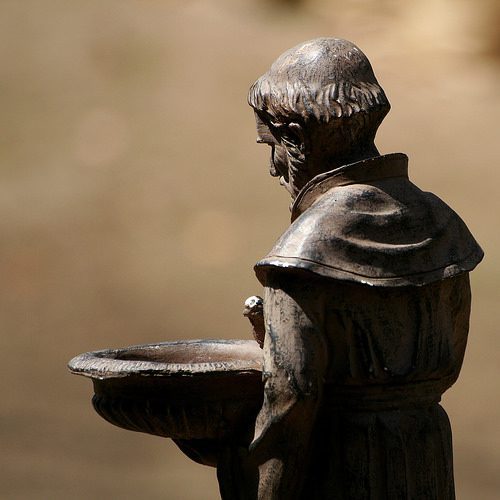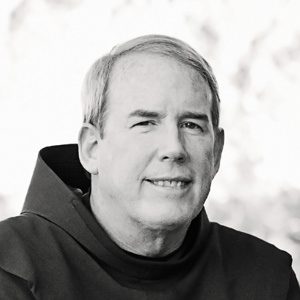Franciscan Friday: St. Francis of Assisi – The Young Man

After writing Getting To Know the “Real” St. Francis of Assisi, Fr. George Corrigan, OFM. continues to bring to light the kind of person St. Francis was in context of his time, his upbringing, and his faith.
 |
| St. Francis of Assisi – by dawnzy58 |
Even in Francis’ day Assisi was a small town, but it was not untouched by the political, economic, and social changes of the late 12th century. The old guard of the city – the noble whose wealth stemmed from rural land holdings inherited from the feudal era – were the majors, the people who counted.
The popolo of Assisi were families whose wealth lay in their riches and successes from the new age of commerce. This group strove to become majores – to be among the group of citizens who mattered. In any case, it was not a struggle that included the minores, the poor and landless people.
Francis was born in 1182, the son of a flourishing cloth merchant, Pietro Bernadone, and his wife Pico. Francis grew up in relative privilege, but he also grew up in an age when pilgrimage and Crusade were models of exemplary life. As Francis came of age, he traveled with his father to markets in France and other locales, where he learned French and the troubadours’ stories of knighthood. This fed Francis’ own imagination at the same time Assisi began to recover and celebrate the martyr saints of Assisi: Rufino, Vittorino, and Savino.
The effect of all this seems to have instilled in Francis a desire for the glory of chivalry as a means to attain the status of majore through celebrated adventure and conquest – perhaps even martyrdom.
But Francis was expected to become part of his father’s business. He received an education, which consisted of a rudimentary knowledge of Latin; basic reading, writing, and composition; and the skills needed to keep business records. The formal education seemed to end at age 14 when he became an apprentice in the family business.
But it was not all work: One of the interesting phenomena of this age was the appearance of societas invenum. These were basically fraternity-party clubs that arose among the children of the nobles and wealthy merchants. Francis had access to fine clothing, funds, and by all accounts became a leader within the Assisi society of the well-to-do. Several early accounts report Francis as holding the leader’s baton aloft leading the society in singing, joking, and traveling between their favorite drinking haunts – all the while footing the bill.
Francis was somewhat vain, charming, and cavalier towards expenses, so long as he was at the center of things. Still, Francis was a bit like the prodigal son, with his endearing qualities that included generosity and a courteous manner. It is not clear if Francis was patterning himself after the chivalrous nature of knights or merely aping the manners of his more connected and privileged peers.
In general, the reputation of the societas invenum was that its members were immoral, intemperate, and debauched. While there is no direct evidence of Francis’ own participation, two years after his death, the biographer Thomas of Celano wrote that Francis was raised “indulgently and carelessly…was taught detestable and shameful things full of excess and lewdness…He boiled in the sins of youthful heat.”
During this time, while busy in the family store, a poor beggar came in asking for help. Francis dismissed him and returned to work, yet the affair ate at him. He realized his courteousness extended only to his peers and noble folk. Contrite, he swore to show chivalry to everyone regardless of class and so ran after the beggar to make up for refusing alms.
But there were limits. Chivalry did not offset Francis’ aversion to physical or social ugliness – and nothing was more revolting than the lepers. He avoided these outcasts whose outward deformities were considered an expression of an inward spiritual or moral deformation. Francis would hold his nose as he ran away from them. Courtesy and manner only went so far.
 Fr. George Corrigan, OFM, is the pastor of Sacred Heart Parish in Tampa, Fla. From 1996 to 1999, he served with FMS as a lay missioner in Nairobi, Kenya, working with refugees and youth. After joining the friars and the priesthood, Fr. George became the president of FMS’ board of directors in 2011.
Fr. George Corrigan, OFM, is the pastor of Sacred Heart Parish in Tampa, Fla. From 1996 to 1999, he served with FMS as a lay missioner in Nairobi, Kenya, working with refugees and youth. After joining the friars and the priesthood, Fr. George became the president of FMS’ board of directors in 2011.
Tagged in:
